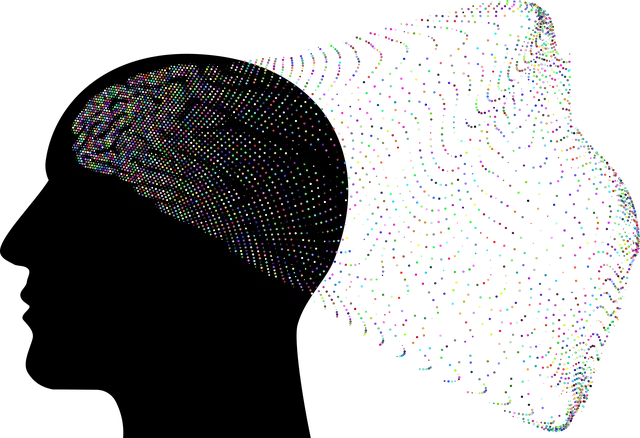Unlocking Mental Health Insights: Lone Tree Kaiser Programs Data Analysis
Lone Tree Kaiser mental health programs prioritize data collection and analysis as a core strategy f…….
In the intricate web of healthcare services, mental health support has emerged as a critical component, especially in addressing the growing global burden of psychological disorders. Among various innovative approaches, the Lone Tree Kaiser model stands out, offering unique strategies to enhance access and quality of care. This article aims to provide an extensive exploration of Lone Tree Kaiser mental health programs, unraveling their structure, impact, and potential. By delving into this topic, we seek to educate readers about a pioneering initiative that could shape the future of mental healthcare.
Definition: Lone Tree Kaiser (LTK) mental health programs refer to a comprehensive set of services designed to address a wide range of mental health concerns, focusing on accessibility, holistic care, and community engagement. This model was developed as a response to the increasing demand for affordable and effective mental healthcare, particularly in underserved communities.
Core Components:
Community-Based Outreach: LTK programs emphasize reaching out to local communities, especially those with limited access to traditional mental health services. This involves establishing partnerships with community organizations, schools, and faith groups to promote awareness and facilitate referrals.
Integrated Care: The model advocates for a collaborative approach where primary care settings, behavioral health specialists, and community resources work together. Integrated care ensures that individuals receive holistic support, addressing both physical and mental health needs simultaneously.
Person-Centered Care: Each individual’s unique needs are at the forefront of LTK programs. Customized treatment plans consider personal preferences, cultural backgrounds, and life circumstances, fostering a sense of empowerment and engagement.
Telehealth Services: Leveraging technology, LTK integrates telehealth solutions to provide remote counseling, therapy sessions, and support groups. This enables access to mental health services for individuals in remote areas or with limited mobility.
Historical Context: The concept of Lone Tree Kaiser was born out of a recognition that traditional mental healthcare systems often fail to reach those most in need, particularly marginalized communities. Founded by a coalition of healthcare professionals and community leaders, the initiative aims to bridge this gap through innovative service delivery models. Over the years, LTK programs have evolved, gaining traction worldwide due to their adaptability and proven effectiveness.
The influence of Lone Tree Kaiser mental health programs extends far beyond its place of origin, shaping global healthcare landscapes:
International Adoption: Many countries, particularly those with limited resources, have embraced the LTK model as a sustainable solution. For instance, in developing regions, community-based outreach has been instrumental in increasing mental health service coverage while reducing financial barriers to care.
Regional Variations: Global trends reveal diverse adaptations of the LTK approach. In Europe, for example, programs often focus on integrating mental health services into primary care systems, while North American initiatives emphasize mobile health (mHealth) solutions and digital therapy platforms.
Increasing Demand: The global mental health crisis has prompted a surge in interest in accessible and affordable treatment options. According to the World Health Organization (WHO), one in four people worldwide will experience a mental disorder at some point in their lives, highlighting the pressing need for innovative care models like LTK.
Market Dynamics: The market for mental health services is experiencing significant growth, driven by rising awareness and increased government investment. Lone Tree Kaiser programs contribute to this trend by offering cost-effective solutions, particularly through community-based interventions and integrated care models.
Investment Patterns: Public-private partnerships play a crucial role in funding and implementing LTK initiatives. Governments, non-profit organizations, and private healthcare providers collaborate to ensure sustainability and reach. These partnerships often lead to efficient resource allocation, knowledge sharing, and improved service delivery.
Economic Impact: By expanding access to mental health care, Lone Tree Kaiser programs have the potential to reduce economic burdens associated with untreated mental disorders. According to a study by the World Bank, treating mental health conditions can result in significant cost savings for individuals and societies, emphasizing the long-term economic benefits of LTK initiatives.
Technology has been instrumental in shaping and enhancing Lone Tree Kaiser mental health programs:
| Advancements | Impact |
|---|---|
| Mobile Health (mHealth) | mHealth solutions, including mobile apps and telehealth platforms, have revolutionized LTK service delivery. These tools enable remote therapy sessions, medication reminders, and easy access to support resources, improving engagement and continuity of care. |
| Digital Therapy Platforms | Online platforms offering digital interventions and therapeutic tools have gained popularity. These programs provide cost-effective, scalable solutions for common mental health concerns, often combined with traditional in-person services. |
| Artificial Intelligence (AI) | AI-driven systems assist in diagnosis, treatment planning, and personalized care recommendations. Chatbots and virtual assistants can provide initial assessments and support, reducing wait times and improving accessibility. |
These technological advancements not only improve access but also contribute to data-driven decision-making, allowing for more tailored and effective interventions.
The development and implementation of Lone Tree Kaiser mental health programs are guided by various policies and regulations:
Health Insurance Portability and Accountability Act (HIPAA): In the United States, HIPAA sets standards for protecting sensitive patient data, ensuring privacy and security in electronic health records, which is crucial for telehealth services.
Mental Health Parity Laws: These laws mandate that mental health benefits be provided on par with physical health services, encouraging insurance coverage for LTK programs.
National Mental Health Strategies: Many countries have developed comprehensive national mental health plans, outlining goals and actions to improve access to care. These strategies often include provisions for community-based initiatives like LTK.
Ethical Guidelines: Professional associations and regulatory bodies provide ethical frameworks for delivering LTK services, ensuring patient safety, informed consent, and cultural sensitivity.
Despite its many successes, the Lone Tree Kaiser model faces several challenges:
Stigma and Cultural Barriers: Overcoming societal stigma associated with mental health remains a significant hurdle. Cultural sensitivities must be addressed to ensure that LTK programs are accessible and acceptable to diverse communities.
Resource Allocation: Adequate funding and resource allocation are critical for program sustainability. Balancing the need for community outreach with infrastructure development is essential to long-term success.
Data Privacy and Security: With increasing reliance on technology, protecting patient data becomes a concern. Ensuring compliance with privacy regulations while leveraging digital tools for improved care is a delicate balance.
Strategic Solutions: To overcome these challenges, collaborative efforts between healthcare providers, policymakers, and community leaders are essential. Addressing stigma through public education, advocating for policy changes to improve funding, and implementing robust data security measures can enhance the effectiveness and sustainability of LTK programs.
Case Study 1: Urban Outreach Program (UOP), United States
The UOP is a city-wide initiative in a major metropolitan area, focusing on engaging underserved youth aged 13-24. By partnering with local schools and community centers, the program provides drop-in counseling services, peer support groups, and educational workshops. Results show a significant increase in youth seeking mental health help and improved outcomes for those with moderate to severe depression.
Key Takeaways:
Case Study 2: Rural Mental Health Initiative (RMI), Australia
RMI aims to improve access to mental healthcare in remote Australian communities. Through a combination of telehealth services, mobile clinics, and community training programs, RMI has successfully established sustainable mental health support networks. The program has led to increased awareness, improved diagnosis rates, and better treatment outcomes for Indigenous populations.
Lessons Learned:
The landscape of mental health care is constantly evolving, presenting both opportunities and challenges for Lone Tree Kaiser programs:
Digital Transformation: The integration of artificial intelligence, virtual reality (VR), and gamified interventions will continue to shape the future of LTK. These technologies offer novel ways to deliver therapy and engage diverse populations.
Precision Mental Health: Personalized treatment plans tailored to individual needs will gain prominence. This approach leverages advanced analytics and patient data to enhance treatment outcomes.
Community Resilience Building: LTK programs are likely to expand their focus on building community resilience, equipping individuals with coping strategies for crisis management and fostering a sense of belonging.
Global Collaboration: As global health initiatives gain momentum, collaboration between countries will be essential to sharing best practices and resources, ensuring that LTK continues to evolve and reach a broader audience.
Lone Tree Kaiser mental health programs represent a forward-thinking approach to addressing the universal need for accessible, quality mental healthcare. Through its holistic, community-centric model, LTK has demonstrated significant impact worldwide. As the global mental health agenda evolves, these programs will continue to play a pivotal role in shaping more inclusive and responsive healthcare systems.
By embracing technology, fostering partnerships, and adapting to emerging trends, Lone Tree Kaiser initiatives can ensure their longevity and effectiveness. The future of mental healthcare looks promising, with LTK at the forefront, guiding us toward a world where quality mental health support is available to all.
Q: How do Lone Tree Kaiser programs address cultural diversity in mental healthcare?
A: LTK initiatives prioritize cultural sensitivity by involving community members from diverse backgrounds in program design and delivery. This ensures that services are tailored to meet the specific needs and beliefs of different cultures, fostering trust and acceptance.
Q: Can you explain the role of technology in improving access to mental health care?
A: Technology plays a dual role. Telehealth and digital platforms enable remote access to counseling and support, while data analytics tools aid in personalized treatment planning. These advancements improve accessibility, especially in underserved areas.
Q: How do LTK programs ensure the privacy of patient information?
A: Patient privacy is protected through stringent data security measures, including encryption, secure storage, and adherence to relevant regulations like HIPAA. Informed consent processes also ensure that individuals understand how their data will be used.
Q: Are Lone Tree Kaiser programs suitable for all age groups?
A: Yes, LTK models are flexible and adaptable. While some initiatives may focus on specific demographics, such as youth or older adults, the core principles can be applied across various age groups, ensuring a tailored approach to meet unique needs.

Lone Tree Kaiser mental health programs prioritize data collection and analysis as a core strategy f…….

Lone Tree Kaiser mental health programs offer a comprehensive, holistic approach to substance abuse…….